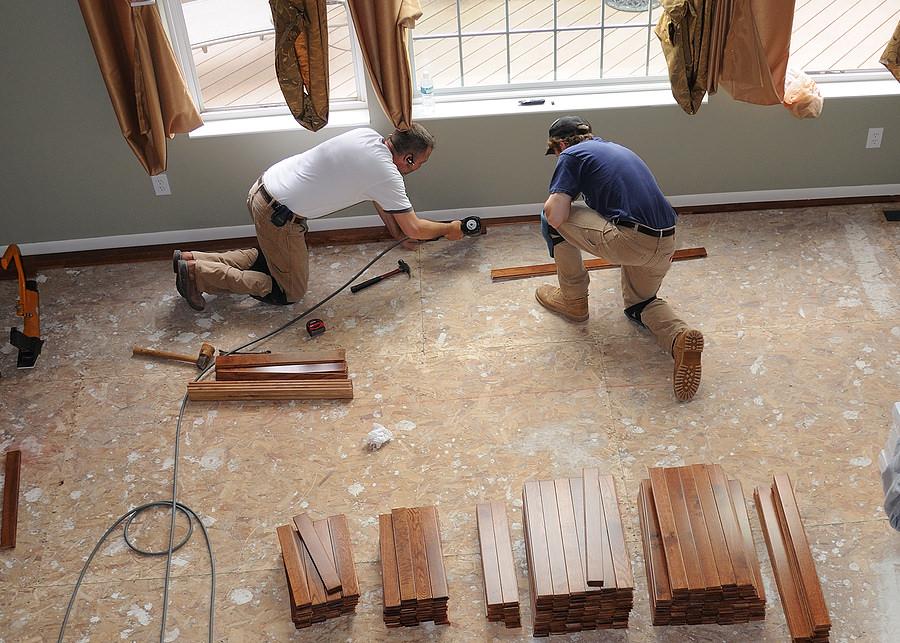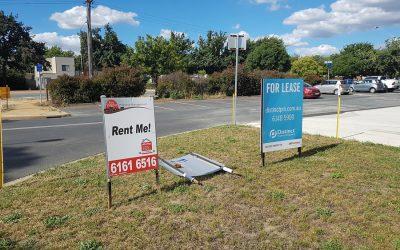
Between social distancing, the eviction moratorium, high unemployment, and a competitive real estate market, many people have discounted the idea of house hacking during the pandemic.
Don’t make that mistake!
There are plenty of ways to house hack that don’t involve bringing in a roommate or sharing your personal space. Deni and Brian walk through five pandemic-friendly ways to house hack and reduce or eliminate your housing costs, from live-in flips to Airbnb income suites and beyond.
Plus: several tools you may not be aware of, for renting out storage space or parking spaces.
Video Broadcast Version
Audio Podcast Version
Also available on iTunes, Stitcher, and wherever else you listen 🙂
Resources Mentioned in This Podcast & Video:

Brian Davis: Good afternoon and happy Tuesday!
Deni Supplee: I Hope everyone is doing great as the weather in the east is getting colder each year.
Brian Davis:We’re getting colder here right
Deni Supplee: Now. We’re all sitting here deciding should we put on the heat our hold off?
Brian Davis: Yeah, my mom lives in Baltimore and she lit a fire for the first time last weekend.
Deni Supplee: Wow. Look at that.
Brian Davis: Yeah. Let us know where you guys are tuning in from as you join us here. We love to hear your guy’s perspective and your voices. This is not a one-way conversation. This is not just a podcast. This is also interactive. So after questions at us and say part of this conversation, it is a two-way dialogue. So Deni what do we talk about last week? What are we talking about today?
Deni Supplee: Well, last week I was not here, but you interviewed Becky, Becky Narva and I have heard great stuff about that interview. I watched it myself and it was phenomenal. She’s just fun, a great lady. And today we’re going to be talking about safe and creative house hacking. Try saying that 10 times hacking tactics during covid because let’s face it again because it does impact our lives, at least for now.
Brian Davis: Back in March, we didn’t think we would still be talking about this because we hoped we weren’t going to be, but, you know, here we are. So hopefully we’re not talking about this next October.
Deni Supplee: I don’t think we will, positive thinking.
Brian Davis:You never know, So Tim said great topic today, glad to be here. Well, Tim, we’re glad to have you with us, as always.
Deni Supplee: Absolutely. How are you doing, Tim? So just in case you don’t know about house hacking, house hacking is a way to slash living costs and in some instances live for free. And there are many ways to do it, whether it’s and we’re going to go over some of them, but whether it’s buying a small multi, living in one, renting out the others, renting out rooms in your house and some of the other things that you can do. So with that being said, I’m going to leave it to you, Brian, to talk to us about the first tactic.
Brian Davis: Sure. Well, traditionally when people talk about house hacking, they’re talking about buying small multifamily and by small within two to four units because up to four units is still classified as residential, which means you can use conventional mortgage financing for it above four units, five units and up you. Those are qualified as commercial properties and they require a different set of financing. So first, in-house hacking you buy small multifamily and two to four-unit property, move into one of the units, and then you rent out the other unit or units and the rent from your neighboring units ends up covering your mortgage. So you get to live for free or at least housing for you.
Right now not everyone loves the idea of living in multifamily. Some people don’t like the idea of becoming a landlord. Although, you know, if you’re listening to this podcast or video cast, then you’re probably not one of those people. But one thing that you can do during covid, because we do have this eviction moratorium hanging over our heads as landlords, and there’s no way to enforce our lease agreements right now. So one way that you can skirt around that pretty major restriction right now is to rent out your other unit or units to Airbnb guests because unless they are there for four months, they do not qualify for squatter’s rights. They are guests in your property and you can have them removed by the police if they overstay their welcome at least if they’re there for less than 30 days or 60 days, depending on your state.
So using your multiunit property for Airbnb can, you know, keep the revenue coming in and you can still enforce that agreement with those renters. And it’s something that’s relatively easy to do. You don’t have to it’s easy to do safely. You don’t have to interact with these people if you don’t want to. You can completely automate the checking process and the checkout process. My wife and I used our baby all the time. When we travel and at least half of our interactions with hosts, we never actually encounter them face to face. So you can do this in a very safe way during the pandemic if you are concerned about meeting just face to face. So, yeah, it’s a perfect way to house hack during the pandemic with a multi-family property and not having to pass over that eviction moratorium, which is a big problem for a lot of landlords out there right now.
Deni Supplee: Now, would you say, Brian, that Airbnb rentals I know for a little bit they were having a hard time like in the beginning, but as of late, I’m hearing that they’re not they’re doing well right now. Do you find that to be the case?
Brian Davis: Well, it depends on the location. A lot of people are skipping the urban travel right now and they’re doing more mountain travel or remote tourist destination travel, going to small beach towns or small mountain towns or that sort of travel, as opposed to, say, going to New York City and doing the whole urban travel. Because let’s face it, those museums that are open are super reduced capacity. And there’s just less appeal to urban tourism right now. So it just depends on where you are located. Some Airbnb landlords are doing better than ever in 2020 something Airbnb and are doing or having the worst year ever. So it just depends on where you’re from.
Deni Supplee: I know in my area when you go towards the mountains right now, there, their prices like skyrocketed and it’s hard to get a place.
Brian Davis: Yeah. No, that’s true. Although that’s not to say that there are no urban or suburban opportunities for Airbnb landlords, I mean, you know, I have a good friend back in Baltimore, is that Green who he has a couple of Airbnb properties and his units got some medium-term renters in there who were there for like a month or two. And he’s actually even before that, he had pretty good occupancy throughout the summer. So there is there are opportunities. So don’t discount Airbnb, but you should do your homework and check what occupancy rates are like in your market if you’re considering switching to that Airbnb model.
Deni Supplee: Right. And Christina from New York says, in upstate New York, which is about an hour and a half from New York City, they’re doing great again, which is similar to what we’re finding here in the Philadelphia Suburban and mountains and vacation areas as well and Katie Davis.
Brian Davis: I happen to know her very well.
Deni Supplee: Do you? She says it seems like some people might prefer Airbnb to hotels at this point as it’s a space completely on your own without the masses of a bunch of people at a hotel, which I agree with that. I mean, over the last summer, we’ve stayed at a couple. And I would prefer that I like Airbnb myself.
Brian Davis: Yeah. I mean, so actually, it’s so incased my kids, my wife, of course, for those who don’t know. But she and I are actually traveling this weekend just doing a little staycation near home. And we thought about staying at a hotel in the city where we live in Brazilia, but we ended up renting a house that’s about a half-hour outside of the city for partially that reason. We don’t want to deal with crowds, with people. We want our own space. And, you know, it’s just safer. And let’s face it, it’s nice to get out of the city.
Deni Supplee: It is.
Brian Davis: When you live downtown and you haven’t been able to do any traveling this year.
Deni Supplee: So Christina also added that some people from New York City are actually coming to upstate to quarantine. So that’s interesting, too.
Brian Davis: Yeah. Yeah, absolutely. And there is a guy; Eddie from [inaudible 8:54] was a coming from the city here. He said I was looking into the hub government website for the was that maybe meant to be heard of housing and Urban Development, FHA, and opportunities. And so you’re talking about financing multifamily properties. And that is a great point. And something that is we were going to mention right here is that you can use conventional financing, including Fannie Mae and Freddie Mac loans, some of which have down payment requirements as low as three percent.
So, way lower down payments. And we’ll link to an article on our blog that outlines some of those programs and can use those as a real estate investor, as a house hacker. So, yeah, you can get way better financing terms from the lower down payment to lower interest rate to lower points and settlement costs. So great point, Eddie. And yeah, way easier to finance. You can’t do that infinitely. But for your first couple properties, you can get away with using conventional financing if you move in.
Deni Supplee: And another way, another thing to keep in mind here is that Airbnb and traveling like that keeps our babies safe.
Brian Davis: Ok, well, that is very true. So the thing is that you don’t have to buy a multi-family property in order to house. You can create an informal granny flat or casita or income suite without actually changing the zoning of your property to being a multiunit property. You can set up a basement apartment or an above garage apartment you can put up a little tiny house on your property if you have a large property, as long as it has a separate entrance, its own kitchen and bathroom, and the sleeping space, it’s its own contained thing.
You can rent that out on Airbnb, as we’ve been discussing this with the more traditional house hacking, or you can rent it to a long term renter like a college student or a grad student or whatever, a young professional. And if you do go to the Airbnb route, then again, you can skirt around that eviction moratorium and still be able to enforce your agreement with you. But a lot of people, it’s not a very big renovation to separate out a basement apartment. A lot of basements have their own separate entrances anyway. So something to keep in mind if you live in a single-family home and you’re not looking to move, but you do, you are interested in house hacking. That’s another option that you can explore, especially during COVID.
Deni Supplee: We also have course information from Al Williamson’s Airbnb course, I will get that link and put it in the did you do it already? Is that why are you smiling?
Brian Davis: No, no. So, one other thing, speaking of renovating your own home, another way that you can house during the pandemic pretty easily and effectively is doing a live-in flip where you buy a single-family home or multifamily home. If you’re feeling that instead and you can move in and renovated over your own timetable, you know, especially if you’re handy. But even if you’re not, you can hire someone for you and move out. So you live there while you’re renovating it. And then when you’re finished renovating it, you saw it and move on to the next property.
But it’s a great way to house hack without having to deal with housemates or immediate neighbors. So if you hold a property for at least one year, then you can avoid short term capital gains taxes, which protects your normal income tax rate. You are taxed at the lower long-term capital gains tax rate. If you hold the property for two years. Then you meet the homeowner exemption. So the first two hundred and fifty thousand dollars in profits are exempt from income taxes. If you’re single, it’s five hundred thousand dollars if you’re married and filing jointly.
So, you move into a property that needs some work, you renovate it on your own schedule over the course of a year or so, and then you sell it and move on to the next property. But your profits from doing that live in flip often will outweigh any housing costs you had during that year or so that you live there. So, it’s a way that we don’t normally talk about the house, but it’s a great way to house, particularly right now during the pandemic if you don’t actually want to deal with renters. So one more option in your toolkit for house hacking during the pandemic. Yeah, and again, you don’t have to worry about the eviction moratorium either.
Deni Supplee: Right.
Brian Davis:Because you’re actually renting anything out.
Deni Supplee: That’s the name of the game right now is trying to escape the eviction moratorium.
Brian Davis: So, speaking of which, Deni, you have a pretty unique way of house asking. You host an international exchange student. So tell us a little bit about how that has worked out for you, how that works a stipend. So, yeah, tell us a little bit about that.
Deni Supplee: Well, crazy as I was at the time, my kids finally left the nest and I wasn’t ready. So I happened to talk to somebody, I believe, and they told me about hosting an international student. I was like, oh, that sounds cool. So I looked into it and signed up and we got Alex. And it’s been really cool. I mean, we experienced this whole COVID with him, which was tough, but it’s been great. And there is a stipend.
So you get paid. Every area is different. In my area, we get about twelve hundred a month, which is currently Almost our full mortgage mine and my husband’s, so it’s a great way to live for free and there are so many experiences like I’ve got friends out of this. I talked to his mother all the time, and it’s just a really, really good experience. So if you ever considered it. Go ahead I’m sorry.
Brian Davis: I was going to say we have a link to where you can check out the company that Deni and her husband go through.
Deni Supplee: Oh, Christina, the company’s name is Cambridge and the really good. They’ve been so supportive, especially through this since March because there’s been a lot of things to navigate. Alex actually just returned. So it’s nice to have them back, but there’s just so many different nuances you have to do and they’re extremely supportive. So it’s been really cool.
Brian Davis: And we added the link there Christina into the comments if you want to check them out. Tim asked here, do a series of mortgage companies qualified for a loan. If you can’t afford the house, if you indicate you’re going to create their baby space on the property. So the way that works Tim is you can use the income from other units to help you qualify for the mortgage. Yeah, so they do it based on long term rents and I think it’s seventy-five percent of the total, the gross rent amount is what they allow you to put towards your income to help you qualify on an income level for the mortgage. So yes, you can use that future income from the extra units for qualifying for your mortgage.
Deni Supplee: And not all lenders may do it that way, but there are some that do. So it just might be a matter of just finding the right one.
Brian Davis: Yeah, yeah. Well, for conventional lenders, I think that’s a hard rule across the board. Seventy-five percent of the gross rents you can put towards your income qualification for the property. But portfolio lenders private companies that lend against rental properties, you know, that’s lender by lender. So you can speak to them and see what they say. All right. So, Danny, our fifth and final pandemic house hacking tactic, take it away.
Deni Supplee: Well, rent your space for stuff and then you don’t have to worry about evicting and you don’t have to worry about dealing with the one to one person during this pandemic. For instance, if you have a garage. Right. I’ve done that. I’ve read it out. And people are looking for stuff like that constantly. So garage, even if you have like we have a very large area that has parking space and there are people looking to park campers and stuff, and it can all it can still reduce your mortgage. And there’s no work involved in that.
There’s not going to be a nuisance with that. It’s you know, maybe somebody’s coming in and out and you can put rules and whatever lease you choose to draw up for these things. I mean, even a basement you can use for storage and whatnot. And then it’s there’s no you don’t have to worry about the moratorium either the eviction moratorium because you just get rid of the stuff. There are certain that each state has regarding that. But it’s way easier than removing IFAB a person, a family, or whatever. So if you have an extra room. Let people put their stuff in it.
Brian Davis: Yeah, so you touched on a couple of points there that are worth diving a little bit deeper into one, is that so there’s self-storage space that you can rent out, for example, in your garage or even your basement or whatever. There’s also a parking space you can rent out. And there are different online websites that you can use for either one of those. So sparefoot.com I know is one for it’s like an Airbnb peer to peer service for self-storage space.
And then there is also parking share parking spot renting companies as well out there that you can use. So not just for cars, but to your point, any ARV’s boats, a lot of people want to cover parking for these. Yes. So if you do have a larger garage or even uncovered a larger driveway where you can fit someone’s RV or someone boat, there’s a huge demand for that even in more rural areas. So, you know, and that’s a very low stress, low hassle kind of landlord self-storage or apartment spaces. So you don’t have to worry about the regulations or any of that stuff. It’s much easier. And Christina says she has a garage that’s sitting empty and she’s getting ready to do this herself off.
Deni Supplee: Awesome!
Brian Davis: Yeah, so we should have I should have pulled some of those links together, so as far as self-storage space, so I can think of two companies at the top of my head. One is sparefoot.com and the other neighbour.com. So those are relatively easy here but I’ll put them in you have them.
Deni Supplee: I already put them in the first chart if you can transfer it over to the public side for the Airbnb course seminar. Free webinar.
Brian Davis: Yeah. Ok, so I put it there to neighbor.com and sparefoot.com and then as far as parking spaces. So spacer is one that I’m aware of, although I’m not sure that that’s available in every single state that might be a regional service. Yeah, I can’t remember there are a whole bunch of websites though for renting out parking spaces so quickly. Google search.
Deni Supplee: Frankly, one of the best it’s like Facebook on their marketplace, probably one of the better ways to even do it.
Brian Davis: And Craigslist oldie but goodie, still super popular. So don’t be afraid to use that. We’ll also put a link here to our free housing hacking calculator if you want to look at that. This is particularly useful for multi-family house hacking or housemate house hacking. A lot of people feel less comfortable doing housemaid house hacking during the pandemic. So we didn’t include that one today.
But if you are interested in some more tactics for house hacking, we didn’t go over today. We’ll also include one final link to an article that goes through 10 different tactics for hacking in the comments as well. And then, yeah, I see Deni sent that link here. It’s not let me copy that link to the Airbnb course, but we will put that on the podcast page that will go out tomorrow. So. All right, any final thoughts before we wrap it up about covid friendly House hacking tactics now?
Deni Supplee: No but, Christine, it brings up a good point check with your local authorities, and that is so true because you don’t know what they will disallow, what they will allow, and whatnot, and you don’t want to get in trouble with them. That can be an issue. I mean, even some homes are in like housing developments that have rules and whatnot and if you’re storing somebody’s boat in your parking garage or your driveway or whatever, you could get in trouble. So, yes, make sure and check with your local authorities before you do anything like that.
Brian Davis: No question. All right. Well, on that note, we’re going to wrap it up for today. We’ll see you guys next Tuesday at two o’clock Eastern, 11:00 a.m. Pacific. And as always, you know, send us an email or a message with any topics that you want to hear about. This is about you guys. It’s not about us. So let us know what you want to hear from you!
























Landlords must prepare for the financial impact of upgrading their rental home features. Some amenities will take time to prove their return on investment. Rentals.com had a great round-up of ideas for Landlords to consider prioritizing and featuring, with how much everything has changed because of Covid. The article can be found here! https://www.rentals.com/blog/rental-house-features-to-prioritize-and-advertise-due-to-the-coronavirus/